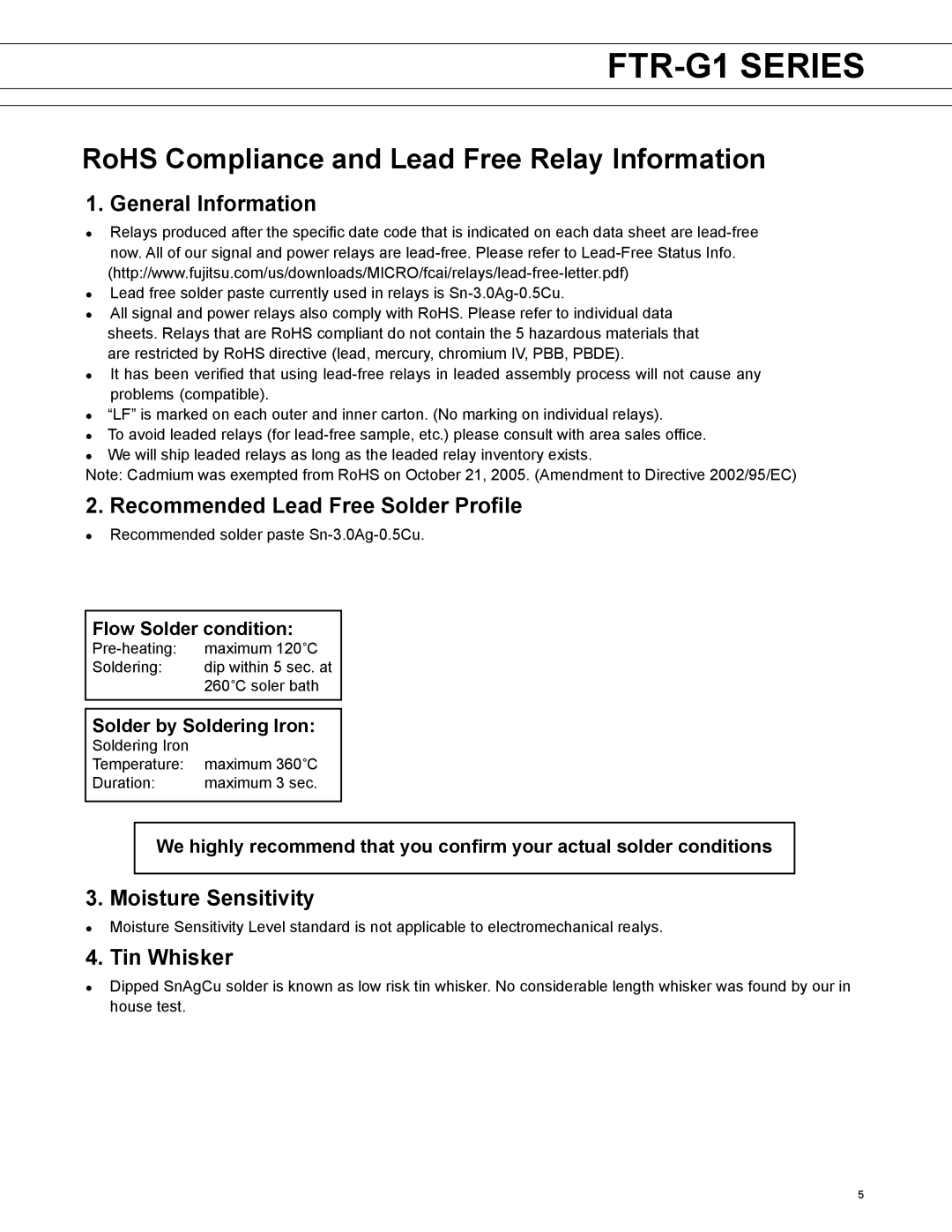
FTR-G1 SERIES
RoHS Compliance and Lead Free Relay Information
1. General Information
•Relays produced after the specific date code that is indicated on each data sheet are
•Lead free solder paste currently used in relays is
•All signal and power relays also comply with RoHS. Please refer to individual data
sheets. Relays that are RoHS compliant do not contain the 5 hazardous materials that are restricted by RoHS directive (lead, mercury, chromium IV, PBB, PBDE).
•It has been verified that using
•“LF” is marked on each outer and inner carton. (No marking on individual relays).
•To avoid leaded relays (for
•We will ship leaded relays as long as the leaded relay inventory exists.
Note: Cadmium was exempted from RoHS on October 21, 2005. (Amendment to Directive 2002/95/EC)
2.Recommended Lead Free Solder Profile
•Recommended solder paste
Flow Solder condition:
Soldering: dip within 5 sec. at 260˚C soler bath
Solder by Soldering Iron:
Soldering Iron |
|
Temperature: | maximum 360˚C |
Duration: | maximum 3 sec. |
We highly recommend that you confirm your actual solder conditions
3. Moisture Sensitivity
•Moisture Sensitivity Level standard is not applicable to electromechanical realys.
4. Tin Whisker
•Dipped SnAgCu solder is known as low risk tin whisker. No considerable length whisker was found by our in house test.
